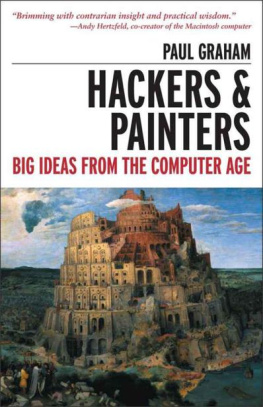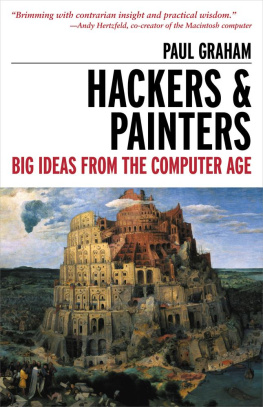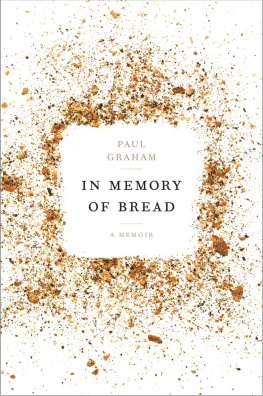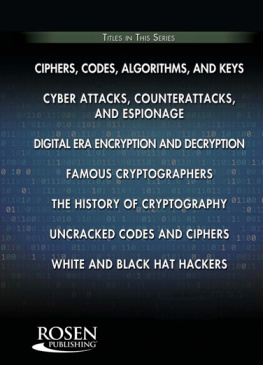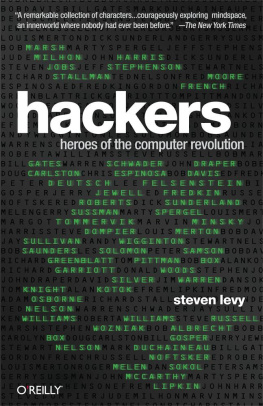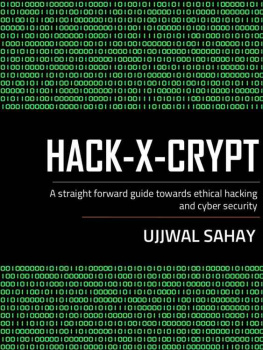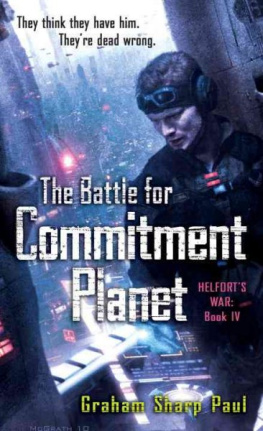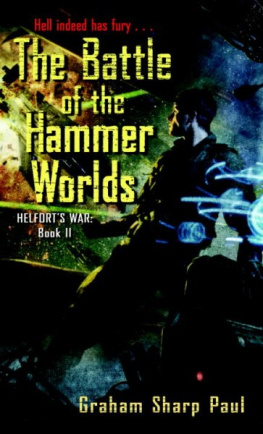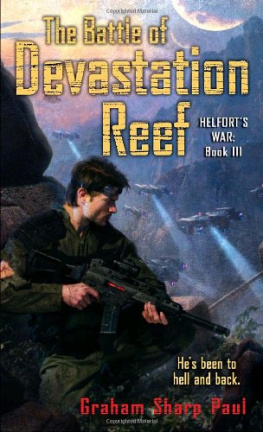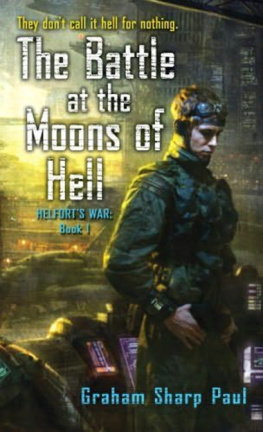Paul Graham - Hackers and Painters: Big Ideas from the Computer Age
Here you can read online Paul Graham - Hackers and Painters: Big Ideas from the Computer Age full text of the book (entire story) in english for free. Download pdf and epub, get meaning, cover and reviews about this ebook. year: 2004, publisher: OReilly Media, genre: Romance novel. Description of the work, (preface) as well as reviews are available. Best literature library LitArk.com created for fans of good reading and offers a wide selection of genres:
Romance novel
Science fiction
Adventure
Detective
Science
History
Home and family
Prose
Art
Politics
Computer
Non-fiction
Religion
Business
Children
Humor
Choose a favorite category and find really read worthwhile books. Enjoy immersion in the world of imagination, feel the emotions of the characters or learn something new for yourself, make an fascinating discovery.
- Book:Hackers and Painters: Big Ideas from the Computer Age
- Author:
- Publisher:OReilly Media
- Genre:
- Year:2004
- Rating:5 / 5
- Favourites:Add to favourites
- Your mark:
- 100
- 1
- 2
- 3
- 4
- 5
Hackers and Painters: Big Ideas from the Computer Age: summary, description and annotation
We offer to read an annotation, description, summary or preface (depends on what the author of the book "Hackers and Painters: Big Ideas from the Computer Age" wrote himself). If you haven't found the necessary information about the book — write in the comments, we will try to find it.
Hackers and Painters: Big Ideas from the Computer Age — read online for free the complete book (whole text) full work
Below is the text of the book, divided by pages. System saving the place of the last page read, allows you to conveniently read the book "Hackers and Painters: Big Ideas from the Computer Age" online for free, without having to search again every time where you left off. Put a bookmark, and you can go to the page where you finished reading at any time.
Font size:
Interval:
Bookmark:
Table of Contents
Copyright 2008 O'Reilly Media, Inc.
The cover image is Pieter Bruegel's Tower of Babel in the Kunsthistorisches Museum, Vienna. This reproduction is copyright Corbis.

FOR MOM
First on the list of people I have to thank is Sarah Harlin. After writing an essay I usually showed it to her first. And she usually crossed out half of it and told me to rewrite the rest. She has a perfect ear for prose rhythm, and barks at superfluous words like a dog after a squirrel.
If these essays are any good it's because most grew out of conversations with her or with Robert Morris, Trevor Blackwell, or Jackie McDonough. I'm lucky to know them.
The book benefits from the ideas of several other friends with whom I've talked about these questions over the past several years: Ken Anderson, Chip Coldwell, Matthias Felleisen, Dan Friedman, Daniel Giffin, Shiro Kawai, Lisa Randall, Eric Raymond, Olin Shivers, Bob van der Zwaan, and David Weinberger. Eric Raymond I owe special thanks not just for his ideas but for his example in writing about hacking.
I owe thanks to many others for help and ideas, including Jlide Aker, Chris Anderson, Jonathan Bachrach, Ingrid Bassett, Jeff Bates, Alan Bawden, Andrew Cohen, Cindy Cohn, Kate Courteau, Maria Daniels, Rich Draves, Jon Erickson, John Foderaro, Bob Frankston, Erann Gat, Phil Greenspun, Ann Gregg, Amy Harmon, Andy Hertzfeld, Jeremy Hylton, Brad Karp, Shriram Krishnamurthi, Fritz Kunze, Joel Lehrer, Henry Leitner, Larry Lessig, Simon London, John McCarthy, Doug McIlroy, Rob Malda, Julie Mallozzi, Matz, Larry Mihalko, Mark Nitzberg, North Shore United, Peter Norvig, the Parmets, Sesha Pratap, Joel Rainey, Jonathan Rees, Guido van Rossum, Barry Shein, the Sloos,Mike Smith, Ryan Stanley, Guy Steele, Sam Steingold, Anton van Straaten, Greg Sullivan, Brad Templeton, Dave Touretzky, Mike Vanier, the Weickers, JonL White, Stephen Wolfram, and Bill Yerazunis.
This book looks good because the design was really done by typography god Gino Lee, not me. I know enough about book design to do whatever Gino says. Chip Coldwell spent hours beating on fonts and Amy Hendrickson days writing LaTex macros to achieve the appearance of ease you see here. The cover, curiously, was in a sense designed by Robert Morris, who fired up the Gimp and did some surgery on the previous version. Thanks to Gilberte Houbart for her ingenuity and persistence in extracting images from sources all over the world.
The guys at O'Reilly did an excellent job: Allen Noren, whose genuine interest in making good books is enough to restore one's faith in the book business; Betsy Waliszewski, whose vision for a more popular book stealthily became mine; Matt Hutchinson, Robert Romano, and Claire Cloutier, who made production run smoothly; and Tim O'Reilly, who shows what publishing can be when a publisher is a person rather than a conglomerate.
Extra special thanks to Jessica Livingston. Her advice improved every part of this book, from the front cover to the index. Her unfailing encouragement made the book better too: by telling me constantly that lots of people would want to read it, she frightened me into trying hard to make it something lots of people would want to read.
I learned about hacking from many people, but I learned about painting mostly from one: Idelle Weber, a great teacher all the better for teaching by example. I'm deeply indebted to her and her husband Julian for years of kindness.
Thanks finally to my father, for teaching me skepticism, and to my mother, for teaching me imagination. Having her for a mom has been like seeing the world in color.
28 Leonardo Da Vinci, Ginevra de' Benci , Ailsa Mellon Bruce Fund. Image copyright 2004 Board of Trustees, National Gallery of Arts, Washington.
32 Copyright Archivo Iconografico S.A./Corbis.
52 Photograph by Margret Wozniak. Reproduced by permission of Steve Wozniak.
83 Copyright Popular Electronics . Courtesy of the Computer History Museum.
86 Courtesy Albuquerque Police Department.
135 Photograph by and reproduced by permission of John Colley.
139 Photograph by Alexei Nabarro, via iStockphoto.
140 The Royal Collection. Image copyright 2004, Her Majesty Queen Elizabeth II.
142 Courtesy of the NASA Dryden Photo Collection.
143 Kunsthistorisches Museum, Wien oder KHM, Wien.
184 Reproduced by permission of Lawrence Livermore National Labs.
185 Reproduced by permission of John McCarthy.
The chapters are all independent of one another, so you don't have to read them in order, and you can skip any that bore you. If you come across a technical term you don't know, take a look in the Glossary, or in , which explains a lot of the concepts underlying software.
We regret to inform readers that, after reading .
http://www.paulgraham.com
This book is an attempt to explain to the world at large what goes on in the world of computers. So it's not just for programmers. For example, is about how to get rich. I believe this is a topic of general interest.
You may have noticed that a lot of the people getting rich in the last thirty years have been programmers. Bill Gates, Steve Jobs, Larry Ellison. Why? Why programmers, rather than civil engineers or photographers or actuaries? "How to Make Wealth" explains why.
The money in software is one instance of a more general trend, and that trend is the theme of this book. This is the Computer Age. It was supposed to be the Space Age, or the Atomic Age. But those were just names invented by PR people. Computers have had far more effect on the form of our lives than space travel or nuclear technology.
Everything around us is turning into computers. Your typewriter is gone, replaced by a computer. Your phone has turned into one. So has your camera. Soon your TV will. Your car has more processing power in it than a room-sized mainframe had in 1970. Letters, encyclopedias, newspapers, and even your local store are being replaced by the Internet. So if you want to understand where we are, and where we're going, it will help if you understand what's going on inside the heads of hackers.
Hackers? Aren't those the people who break into computers? Among outsiders, that's what the word means. But within the computer world, expert programmers refer to themselves as hackers. And since the purpose of this book is to explain how things really are in our world, I decided it was worth the risk to use the words we use.
The earlier chapters answer questions we have probably all thought about. What makes a startup succeed? Will technology create a gap between those who understand it and those who don't? What do programmers do? Why do kids who can't master high school end up as some of the most powerful people in the world? Will Microsoft take over the Internet? What to do about spam?
Several later chapters are about something most people outside the computer world haven't thought about: programming languages. Why should you care about programming languages? Because if you want to understand hacking, this is the thread to followjust as, if you wanted to understand the technology of 1880, steam engines were the thread to follow.
Computer programs are all just text. And the language you choose determines what you can say. Programming languages are what programmers think in.
Font size:
Interval:
Bookmark:
Similar books «Hackers and Painters: Big Ideas from the Computer Age»
Look at similar books to Hackers and Painters: Big Ideas from the Computer Age. We have selected literature similar in name and meaning in the hope of providing readers with more options to find new, interesting, not yet read works.
Discussion, reviews of the book Hackers and Painters: Big Ideas from the Computer Age and just readers' own opinions. Leave your comments, write what you think about the work, its meaning or the main characters. Specify what exactly you liked and what you didn't like, and why you think so.

